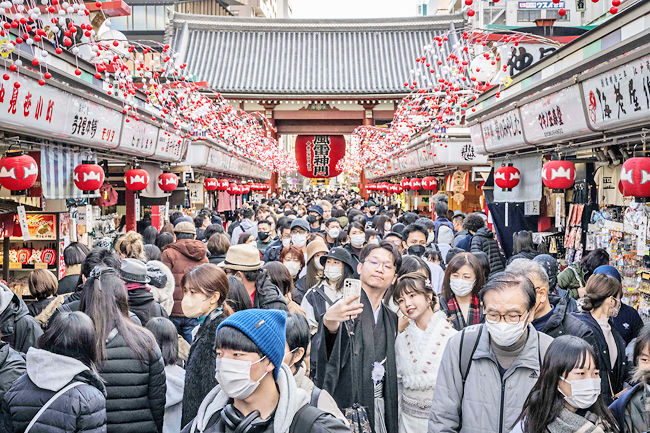TOKYO (AP) – Japan yesterday started requiring COVID-19 tests for all passengers arriving from China as an emergency measure against surging infections there as the Asian island country faces its own rising case numbers and record-level deaths.
Japan reported a record 420 new coronavirus deaths on Thursday, one day after reaching an earlier single-day record of 415 deaths, according to the Health Ministry.
The numbers are higher than the daily deaths at the peak of an earlier wave in August, when they exceeded 300.
Experts said the reason for the latest increase is unclear but could be linked to worsening chronic illnesses among older patients.
Japan yesterday put into effect tightened border measures it announced earlier in the week: The antigen test that was already conducted on entrants suspected of having COVID-19 is now mandatory for all people arriving from mainland China. Those who test positive will be quarantined for up to seven days at designated facilities and their samples will be used for genome analysis.

The measures began ahead of the new year’s holidays marked by travel and parties. Direct flights between China and Japan will be limited to four major Japanese airports for now, government officials said.
Flights from Hong Kong and Macao will be allowed to land at three other airports – New Chitose Airport in Hokkaido, Naha Airport in Okinawa and Fukuoka Airport – provided there are no passengers who have been to mainland China within seven days prior to the flight.
Hong Kong authorities called the restrictions “unreasonable” and requested Japanese authorities to withdraw them.
Prior to adding the three airports for flights from Hong Kong and Macao, authorities said that 60,000 travellers and some 250 flights would be affected between December and January.
Hong Kong tour operators are scrambling to rearrange flights for their customers to minimise losses. Travel agency EGL Tours Executive Director Steve Huen Kwok-chuen said his company was forced to cancel some tours after Japan initially decided to limit flights from Hong Kong to land at just four Japanese airports.
After Thursday’s policy change, his staffers tried to call the customers who were in the cancelled tours back but could not get all of them back.
About 500 customers who had planned a trip to Japan between late December and early January were lost, Huen said.
“After enduring for three years, we thought there would be some silver lining,” he said.
“But the restrictions made us suffer some business losses.”






